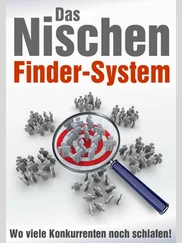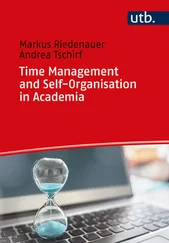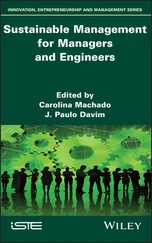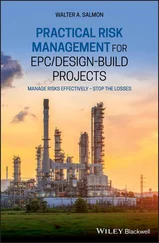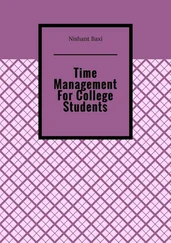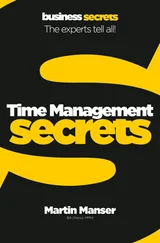Thomas Limoncelli - Time Management for System Administrators
Здесь есть возможность читать онлайн «Thomas Limoncelli - Time Management for System Administrators» весь текст электронной книги совершенно бесплатно (целиком полную версию без сокращений). В некоторых случаях можно слушать аудио, скачать через торрент в формате fb2 и присутствует краткое содержание. Жанр: Старинная литература, на английском языке. Описание произведения, (предисловие) а так же отзывы посетителей доступны на портале библиотеки ЛибКат.
- Название:Time Management for System Administrators
- Автор:
- Жанр:
- Год:неизвестен
- ISBN:нет данных
- Рейтинг книги:4 / 5. Голосов: 1
-
Избранное:Добавить в избранное
- Отзывы:
-
Ваша оценка:
- 80
- 1
- 2
- 3
- 4
- 5
Time Management for System Administrators: краткое содержание, описание и аннотация
Предлагаем к чтению аннотацию, описание, краткое содержание или предисловие (зависит от того, что написал сам автор книги «Time Management for System Administrators»). Если вы не нашли необходимую информацию о книге — напишите в комментариях, мы постараемся отыскать её.
Time Management for System Administrators — читать онлайн бесплатно полную книгу (весь текст) целиком
Ниже представлен текст книги, разбитый по страницам. Система сохранения места последней прочитанной страницы, позволяет с удобством читать онлайн бесплатно книгу «Time Management for System Administrators», без необходимости каждый раз заново искать на чём Вы остановились. Поставьте закладку, и сможете в любой момент перейти на страницу, на которой закончили чтение.
Интервал:
Закладка:
The difficult part about this system can be getting started. If you have 2,000 email messages in your inbox, this system must sound like some kind of unrealistic fantasy.
My recommendation? Forget the really old stuff and move forward.
Some mail clients have special archive functions. However, it is just as easy to create a folder called "DeadItems-2005-11-19" (or whatever the date is) and move all items older than that date into that folder.
Now you have a clean inbox, and if someone does need you to pull something out of your old archive, it's all right there.
And if you don't touch that folder for a full year, burn it onto a CD-ROM, delete it, whatever, just get it out of your mailbox. If you haven't touched it for a year, there is little chance you'll touch it ever. Your email client will run faster now that it doesn't have to manage such a huge index.
I'm still waiting for someone to write a program that will seek out all email older than a year and burn them onto a CD-ROM, along with a little Java program that would let me search and browse the messages, and even restore selected items to my mail reader. Alas, such a beast doesn't exist. I even have a cool name for the technique: "Pickled Email" (like the food-preserving process). If you invent such a tool, you are free to use that name—no charge.
Does it sound impossible to just let go of 2,000 email messages?
Let me ask you this: when are those 2,000 email messages actually going to get processed?
Next month?
How long have you been saying "next month"?
Before I developed the previously described technique, I tried two other methods unsuccessfully:
Random 100 a day. I used to think that if every day I could process and delete 100 old messages, I could clean out my inbox in a month. However, when I tried to do that, my inbox just got bigger! I couldn't keep it up for a full month. Plus, processing 100 messages can take more than an hour. That's 20 to 30 hours—more than half a week—to complete this project. I could do other things with that time.
By person. Another technique that I tried was to process my inbox by person. I'd deal with all the messages from a particular person. They'd get a flood of mail: "Do you still need this?" "What about this?" "Hey, I finally read this, it was hilarious. Thanks!" Then I was done with that person forever...or until the next time I got behind in reading email.
Though the by-person technique also failed for me, it did have a benefit over processing 100 messages a day: it let me set priorities. I could pick the more important people in my life rather than a smattering of messages from random people.
However, realistically, once you have more than 1,000 or so messages in your inbox, I think you have to accept that those messages are never going to really get processed.
Sorry, they just aren't.
I know it's difficult to accept because it was difficult for me, too. However, one day I looked at the oldest messages in that big pile and realized that some of them were more than five years old—from another era.
If you reply to an email that is that old, people often think you are crazy, or they question if your reply was caught in a stuck queue, or they make a joke about time travel.
What's the worst that could happen? If the email was truly urgent, you would have already received another request, or you would have gotten in trouble. Huge inboxes are full of messages that are, essentially, dead.
So, if they are never going to get processed, why not move them to an archive and forget about them? Your mail client will work faster without all those messages eating up memory and other resources. It will start up faster, too.
Summary
Most system administrators receive more email than they know what to do with. If you don't manage your email, email will manage you. Get control over your email and you'll be a long way toward regaining control over your time.
Your inbox is a lousy way to manage your to do list.
The goal is to get to an empty inbox. To do that, all actions you take on an email must end with either deleting or filing the message. To that end, I recommend a project that involves handling each message in one of these ways: filter, delete unread, read and process, or do and delete.
Filter. Use filtering software to pre-process your email and automate many tasks.
Delete unread. Certain kinds of messages can be deleted safely without reading.
Read and process. Whether the email needs to be read, forwarded, recorded in an organizer or request tracker, or filed, make sure you complete the task and remove it from your Inbox. Don't let it linger.
Do and delete. If a task can be done in a few minutes, do it now then delete the message.
To deal with the backlog you may have accumulated until now, I recommend that you save it somewhere and forget about it. If a message was really important, someone would have come after you. Email is ephemeral. The older a message gets, the less value it has.
Chapter 11. Eliminating Time Wasters
This chapter helps you identify time wasters and explores ways to eliminate them.
Let me tell you a little about myself. I love reading Usenet newsgroups (NetNews). I can read bulletin boards for hours. Before the Web existed, Usenet was where I spent most of my online time. I would have been an A student if it hadn't been for Usenet. Darn Usenet!
In my defense, I was quite good at reading Usenet. I tried every new release of every NewsReader on an eternal quest for the one that would enable me to read the most articles in the shortest amount of time. I actually did benchmarks.
I could whip through articles like you wouldn't believe. Seriously—other Usenet aficionados would watch me and ask for tips.
Then one day I came up with the most amazing optimization to the process. I decided to stop reading Usenet all together. I gained a couple of hours each day.
The ultimate process improvement is to eliminate the process. Eliminate, don't automate. (But if you must automate, read Chapter 13.)
The problem is identifying what is worthwhile and what is worth eliminating.
What Is a Time Waster?
I define a time waster as any activity that has a low ratio of benefit to time spent.
Everything has some kind of benefit. Spending five hours playing video games has an entertainment benefit. However, other things have benefits that might be more valuable to you. For example, spending the same
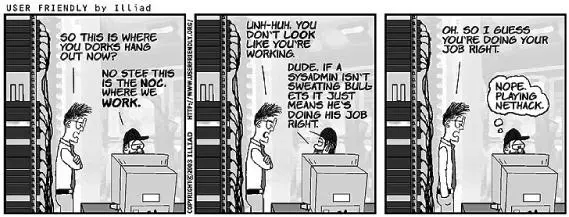
Figure 11-1.
amount of time to increase your quality of living by doing home repairs has longer-lasting benefits than blasting millions of pixilated aliens.
The things that waste our time at work are different—phone calls with people who never stop talking, inefficient processes, waiting around for all our lunch buddies to assemble so we can leave for lunch, etc.
Avoiding the Tempting Time Wasters
Some time wasters are just irresistable. It comes down to "everything in moderation." Short conversations around the watercooler break up the boredom and monotony of the workday and let us return to work refreshed. Multihour conversations about nonwork topics, on the other hand, are not so valuable.
The problem is that it is difficult to do things in moderation. As Oscar Wilde said, "I can resist everything but temptation." It's difficult to say to yourself, "I'll just play video games for a minute" or "I'll just look at the subject lines of my email and only read the important ones." Soon you're deleting spam, replying to requests, and then you look at your clock and see that a few hours have passed.
Читать дальшеИнтервал:
Закладка:
Похожие книги на «Time Management for System Administrators»
Представляем Вашему вниманию похожие книги на «Time Management for System Administrators» списком для выбора. Мы отобрали схожую по названию и смыслу литературу в надежде предоставить читателям больше вариантов отыскать новые, интересные, ещё непрочитанные произведения.
Обсуждение, отзывы о книге «Time Management for System Administrators» и просто собственные мнения читателей. Оставьте ваши комментарии, напишите, что Вы думаете о произведении, его смысле или главных героях. Укажите что конкретно понравилось, а что нет, и почему Вы так считаете.




